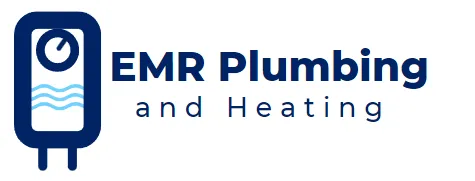Troubleshooting Tips for Common Concord Water Heater Problems
Maintaining a well-functioning home is crucial for Concord homeowners. A major component of this is ensuring the water heater is maintained properly as it is essential to daily routines. A malfunctioning heater could lead to a cold shock and disruptions in your schedule. This comprehensive guide covers the most common issues and troubleshooting tips to resolve them, empowering you with the knowledge to deal with any water heater issues that may arise.
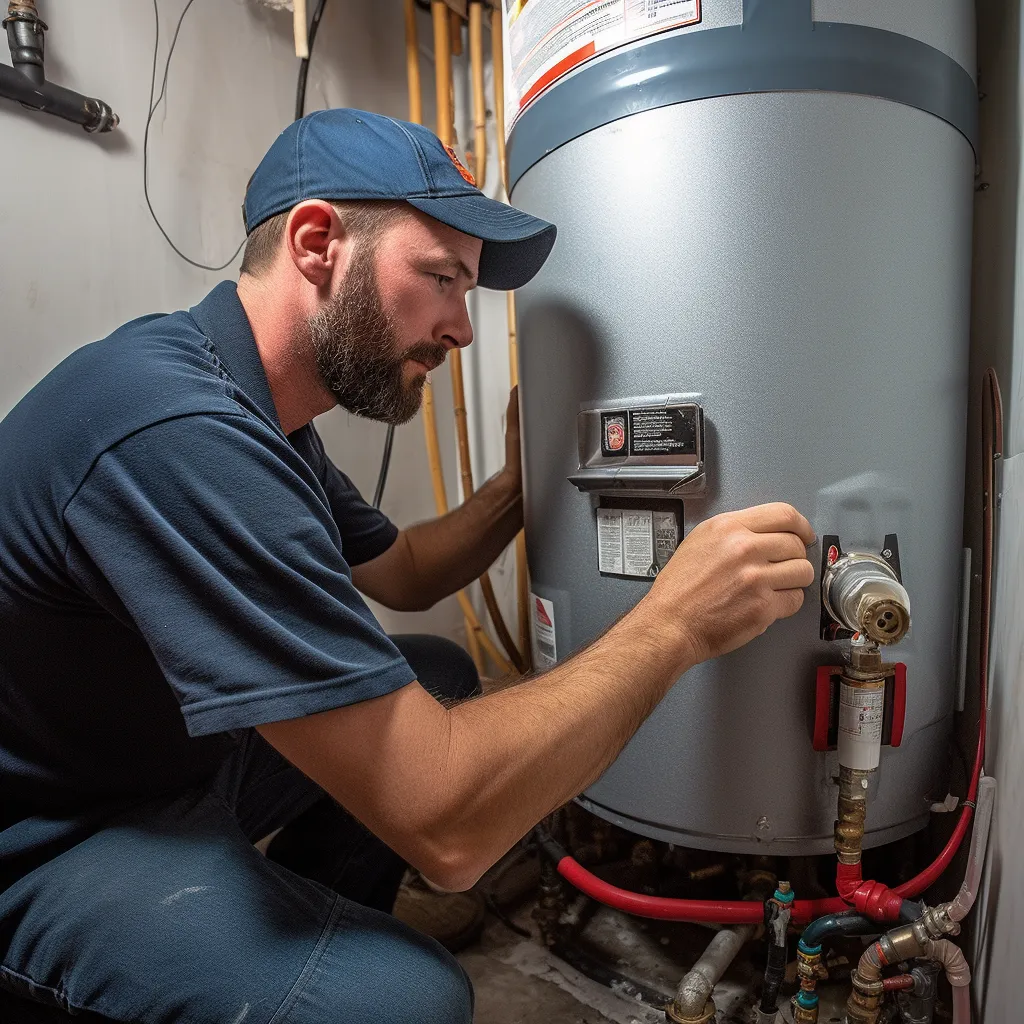
The tank is leaking
If you come across a leaking water heater, it may be due to a fault in the pressure relief valve or a corroded tank. Here are some things you can do:
Before replacing the pressure relief valve, inspect it to determine if it is faulty.
Closely examine the tank for any signs of corrosion or damage, noting that corrosion is grounds for tank replacement.

The water is discolored
If you're noticing discolored water, your water heater may require flushing and descaling. Here are the steps you should follow.
Check if the pressure relief valve needs replacing.
Flush your water heater with a mixture of white vinegar and water.
Inspect the anode rod for corrosion and replace it if necessary.
Contact a professional if a complete descaling treatment is needed.

The water smells bad
If you experience issues with your tank, such as unpleasant odors, it could be due to bacteria buildup. Here's what you can do:
Have a professional inspect your tank to determine if replacement is necessary.
You can reduce odors by flushing out the water heater using a solution of white vinegar and water.

Noisy water heater
If you notice strange noises coming from your water heater, it's likely due to either sediment buildup or loose parts. Here are the steps you can take to fix the issue:
To prevent sediment from building up, make it a point to flush your water heater at regular intervals.
Consider having a licensed plumber inspect all internal components to make sure everything is securely in place.

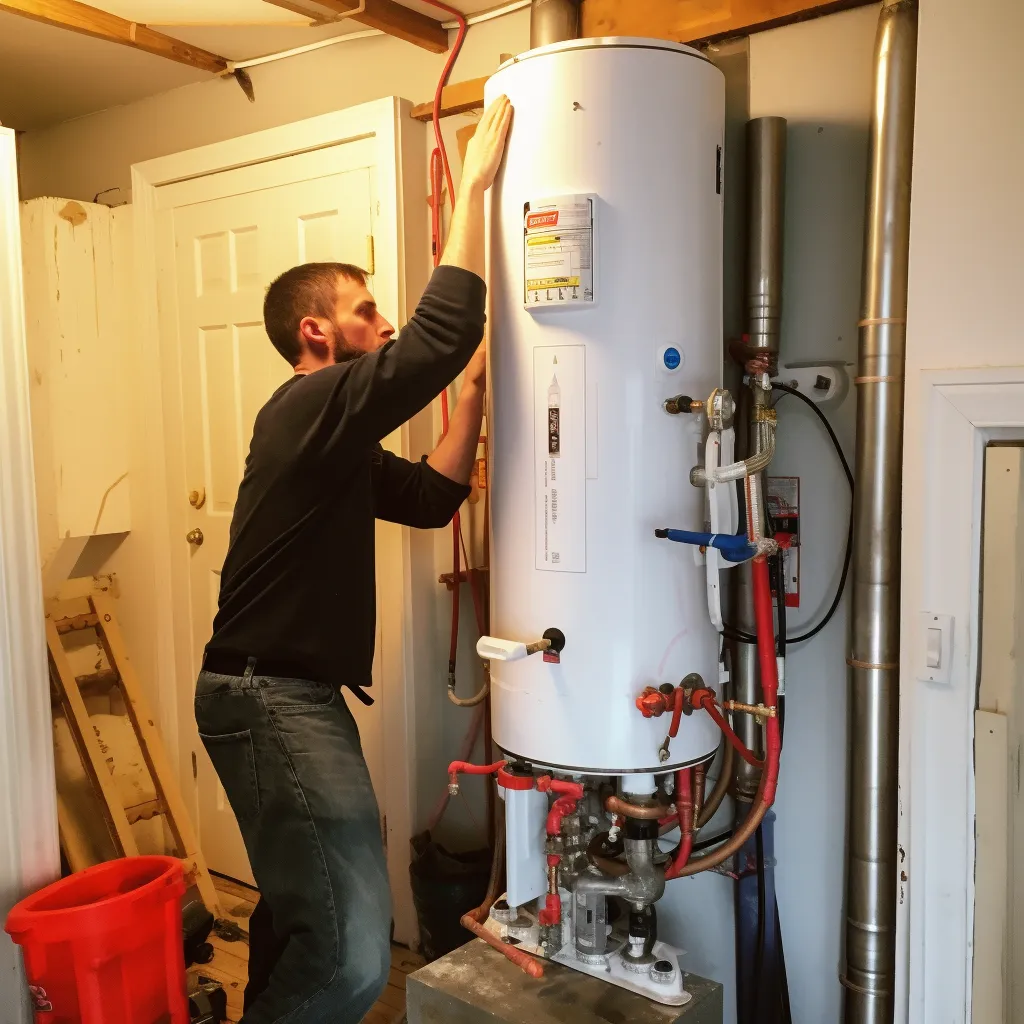
Tank takes a long time to reheat
If the tank heater is taking an unusually long time to reheat, the issue could be caused by a faulty thermostat, undersized tank, or mineral buildup. Here are some steps that can help you troubleshoot the problem and resolve it:
Check if the water temperature is set correctly.
If the issue persists, try replacing the thermostat.
In case of excessive buildup, it's recommended to seek professional help to descale and check for mineral buildup.
If you often run out of hot water, upgrading to a larger tank may help avoid this problem.
Low hot water pressure
If you have low hot water pressure, it might be caused by a small hot water tank or a leaky system. There are some things you could try to solve this issue:

Ensure your tank is the appropriate size for all hot water outlets. If not, choose a larger tank.
Have a licensed plumber examine your plumbing for leaks.
Confirm the pressure relief valve is operating correctly.

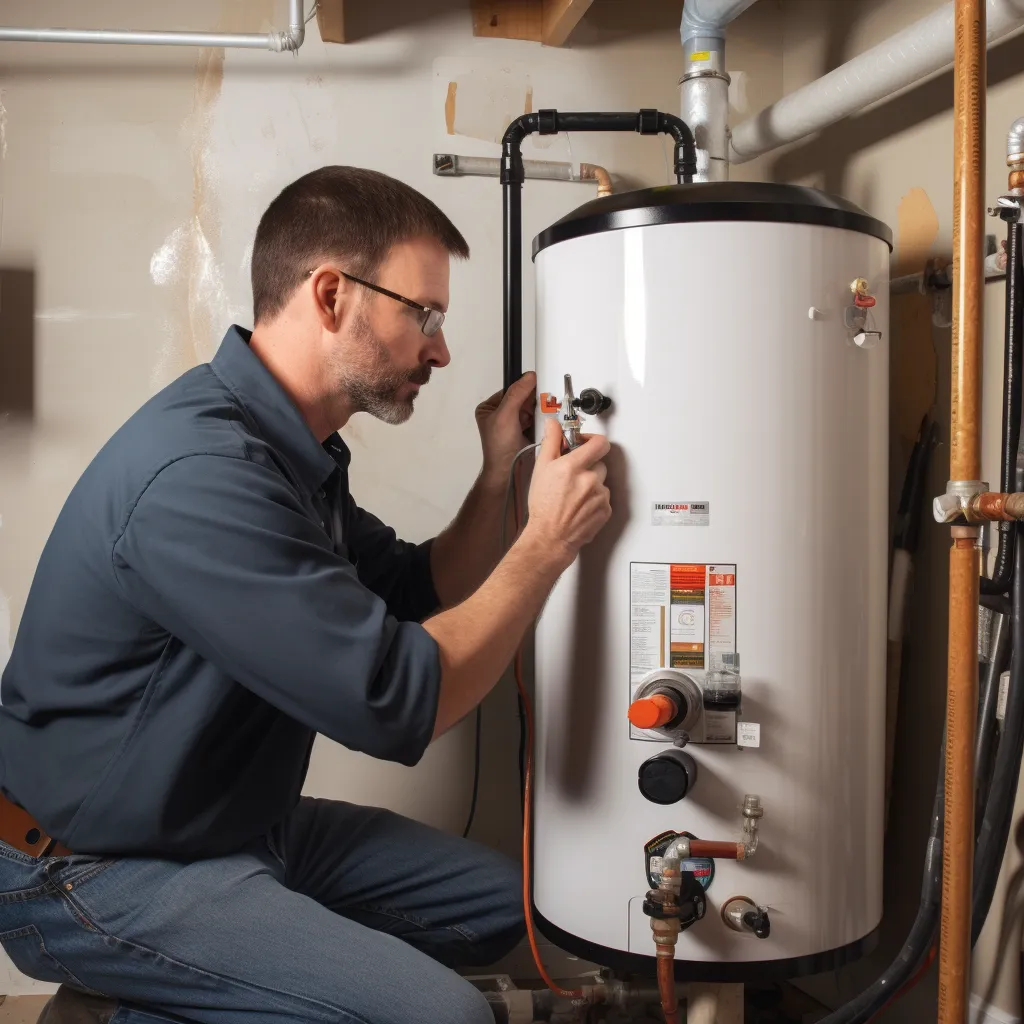
Low supply of hot water
There are several reasons why your water might be cooling down too rapidly, including a malfunctioning thermostat, an undersized tank, or clogged pipes. Here are some tips to help troubleshoot the issue:
Verify if your thermostat is in good working condition.
It is advisable to have your water heater system checked by an expert and conduct a proper scale cleaning if needed.
Upgrade to a larger tank if your current tank doesn't meet your expectations.
Ways to prevent future water heater problems
Here are some steps you can take to avoid future problems with your water heater:
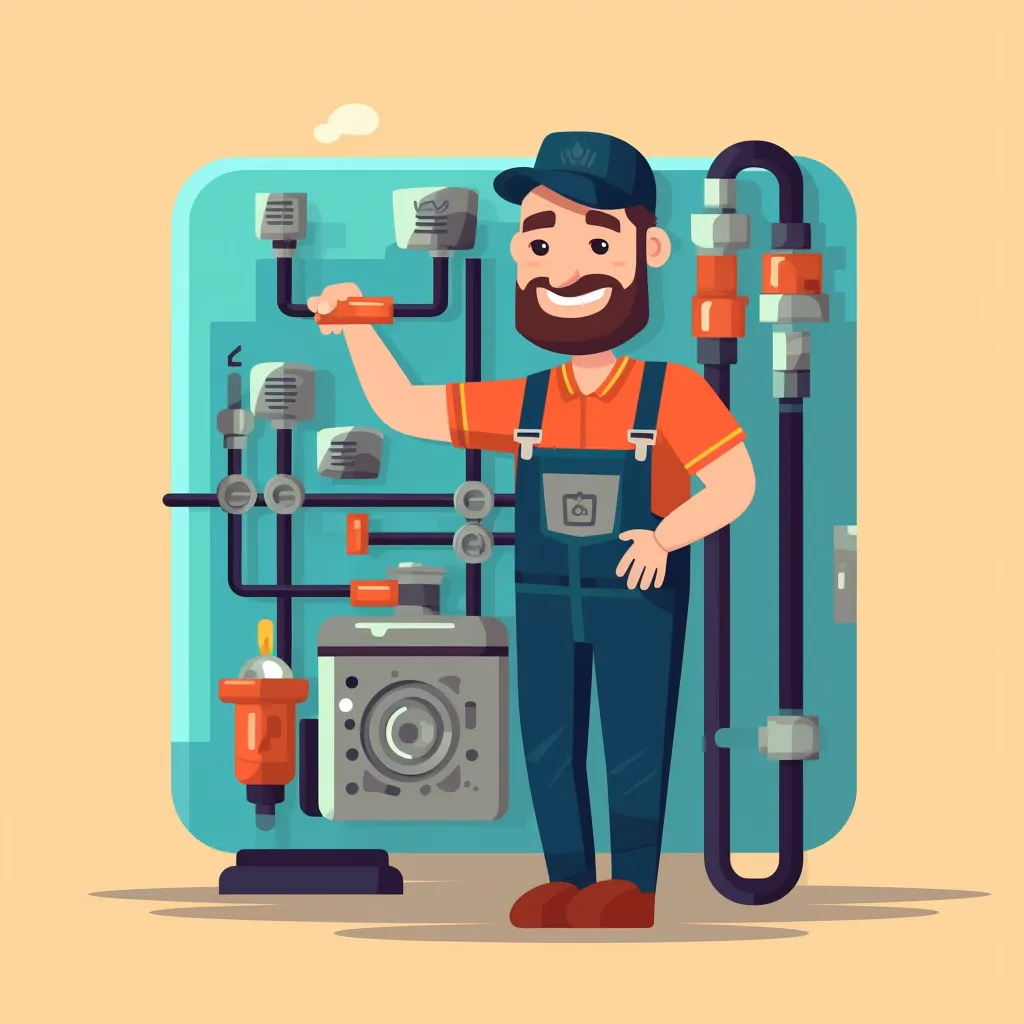
Periodically inspect your water heater for signs of wear and corrosion.
Flush out the tank regularly to remove sediment buildup.
Check valves and fittings frequently to ensure there are no leaks.
Replace the anode rod every few years to prevent corrosion.
Call a water heater professional for full descaling or annual servicing.
Choose the appropriate water heater size for your needs.
Adjust the temperature to recommended settings.
Insulate pipes to reduce heat loss.
Consider using energy-efficient models to save energy.
Promptly repair any leaks.
Know the location of the shutoff valve in case of emergencies.
Lower the temperature to reduce energy usage.
Keep a solution of white vinegar and water in the tank to reduce odors.
Avoid using chemicals that can damage the water heater.
Follow the manufacturer's instructions for servicing and repairs.

Contacting a professional is recommended if you feel uncertain about your repair or maintenance capabilities. These are, however, some basic steps you can follow to keep your water heater running smoothly and prevent future issues.
How do you know when to call
in a licensed plumber?
To maintain your water heater's efficiency and safety, hiring a licensed plumber to inspect and service it is crucial. Not only can they detect any issues before they escalate and ultimately save you money, but they can also offer recommendations on the optimal water heater for your home and provide energy-saving solutions. If you've noticed any problems with your heater, it's important to contact a plumber immediately to avoid costly repairs.
What to look for in a water heater pro
When hiring a licensed plumber, be sure to do your due diligence and look for:
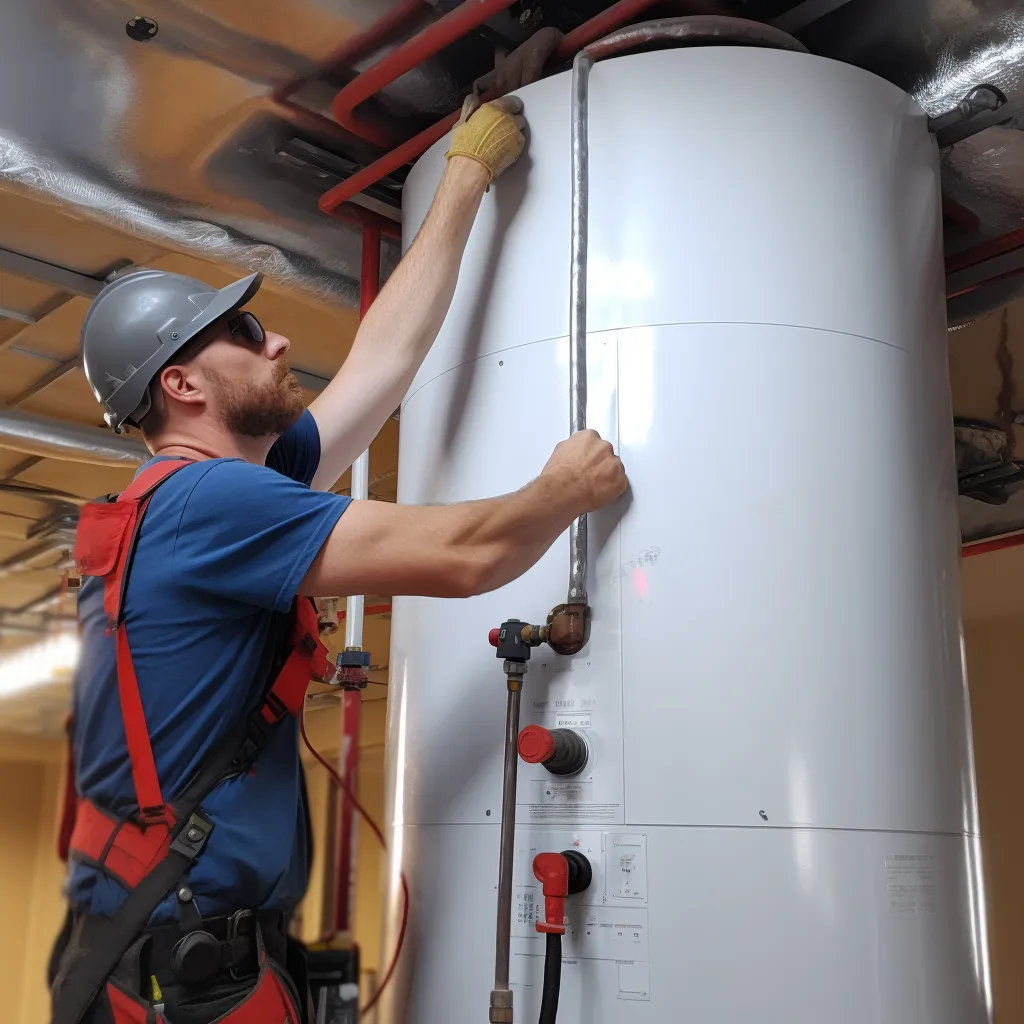
Ensure the plumber is licensed and insured to work in your area.
Choose an experienced specialist for repairing and maintaining your system.
Do your own research by checking the company's website and ratings, and asking friends for recommendations.
Compare prices to find a rate that fits your budget.
Confirm the technician is informed on up-to-date trends and technologies.
Inquire about service guarantees and emergency availability.
Effective communication with the expert is vital in understanding the work being done.
When in doubt, reach out
to an experienced professional
Water heater problems can have several underlying causes, and some of the most common are listed here. For a dependable and lasting solution, you should have a licensed plumber examine the unit. Following these suggestions can help resolve any water heater difficulties and keep your household running smoothly. If further assistance is required, don't hesitate to reach out to an experienced plumber who can assess your water heater and suggest effective solutions.
Ready to Solve Your Plumbing Needs?
For reliable, expert plumbing services tailored to the needs of Concord and its neighboring cities, look no further than EMR Plumbing and Heating. We’re here for you 24/7, ensuring that your plumbing is always in top condition.
Call us today to schedule your service!
Business Hours: Monday - Sunday, 24 Hours
Phone Number: (603) 634-8285
Location: Concord, N.H., serving all surrounding areas.
Trust your local experts at EMR Plumbing and Heating for professional, timely, and efficient plumbing solutions.
GET IN FULL TOUCH
PHONE: (603) 634-8285
EMAIL:
ryan@waterheaterconcord.com
EMR Plumbing and Heating
Concord, N.H. 03303
